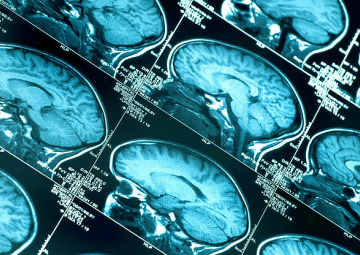The Centre for Healthy Brain Ageing (CHeBA) conducts multidisciplinary research into issues associated with brain ageing. CHeBA welcomes all research students at undergraduate and postgraduate levels. We have a strong record of student supervision for:
- PhD & Masters by Research
- Honours and Independent Learning Projects (ILP) within the undergraduate medicine degree
- Relevant research projects within other undergraduate degrees at UNSW (e.g. 5th year optometry degree research projects)
Our staff come from a range of different research backgrounds, including information technology, genetics, neuropsychology and stem cell research, and while located within the School of Psychiatry, are not limited to supervising only in psychiatric research areas.
 We therefore bring a wealth of skills and expertise relevant to the following research topics:
We therefore bring a wealth of skills and expertise relevant to the following research topics:
- Aged care, aged care services (including nursing homes) and interventions
- Cognitive ageing, including neurodegenerative diseases (e.g. dementia, vascular dementia, Alzheimer’s disease)
- Depression, anxiety, apathy and other psychiatric issues in older people
- Drug and therapeutic trials associated with brain ageing disorders
- Factors affecting ageing throughout the life cycle
- Genetics, epigenetics and genomics
- Neuroimaging
- Neuroinflammation and metabolic factors
- Neuropsychology
- Neuropsychiatry
- Nutrition and ageing
- Prevention of cognitive ageing
- Psychiatry
- Psychology
- Proteomics
- Social and cultural factors related to ageing and aged care
- Successful ageing/healthy ageing (including studies of centenarians)
CHeBA is also pleased to offer a range of scholarships. For more information, see Scholarship Opportunities.
- CHeBA’s Student Community
-
CHeBA’s community of PhD, ILP and Honours students provides a friendly and supportive research environment. The strong collaborative network of peers actively participating in the highly engaging and critical work undertaken at CHeBA is an invaluable study resource.
- Support from CHeBA Staff
-
CHeBA is a world leader in brain ageing research and is home to world renowned and highly accomplished research staff, both academic and professional. They offer a wealth of experience and knowledge to students and a significant part of their roles is to mentor future leaders in healthy brain ageing research. CHeBA’s multidisciplinary approach means students have access to experts in a variety of specialty areas including statistics and literature reviews.
- Clinical Experience
-
Students at CHeBA can immerse themselves in practical experiences through valuable exposure to clinical work. This hands-on exposure bridges the gap between study and clinical practice and is the ideal pathway to careers in neuropsychology and neuropsychiatry.
There may be opportunities to be involved in clinical activities with clinicians in our team
- Vibrant Research Resources
-
A multitude of highly engaging seminars, journal clubs, academic meetings, webinars and workshops, all showcasing and discussing the latest research findings, are hosted by CHeBA. Among them is the CHeBA Visiting Lecture Series which presents premier researchers from across the world and their work. At the internal CHeBA Seminar Series students are invited to present their work to and alongside their colleagues – a tremendous opportunity to develop critical academic skills. CHeBA staff and students are also involved in the numerous forums offered by the UNSW School of Psychiatry.
- CHeBA’s Research Groups
-
CHeBA’s Research Groups underpin its truly multidisciplinary approach towards critical brain ageing research.
Group Leader/s Epidemiology Professor Perminder Sachdev, Professor Henry Brodaty Genetics and Epigenomics Dr Karen Mather Neuroimaging Associate Professor Wei Wen Neuropsychiatry Professor Perminder Sachdev Neuropsychology Dr Nicole Kochan, Dr Teresa Lee Omics and Neurobiology of Ageing Dr Nady Braidy, Dr Anne Poljak Old Age Psychiatry Professor Henry Brodaty
Contact
For any enquiries, please contact:
Dr Sophia Dean
E s.dean@unsw.edu.au




